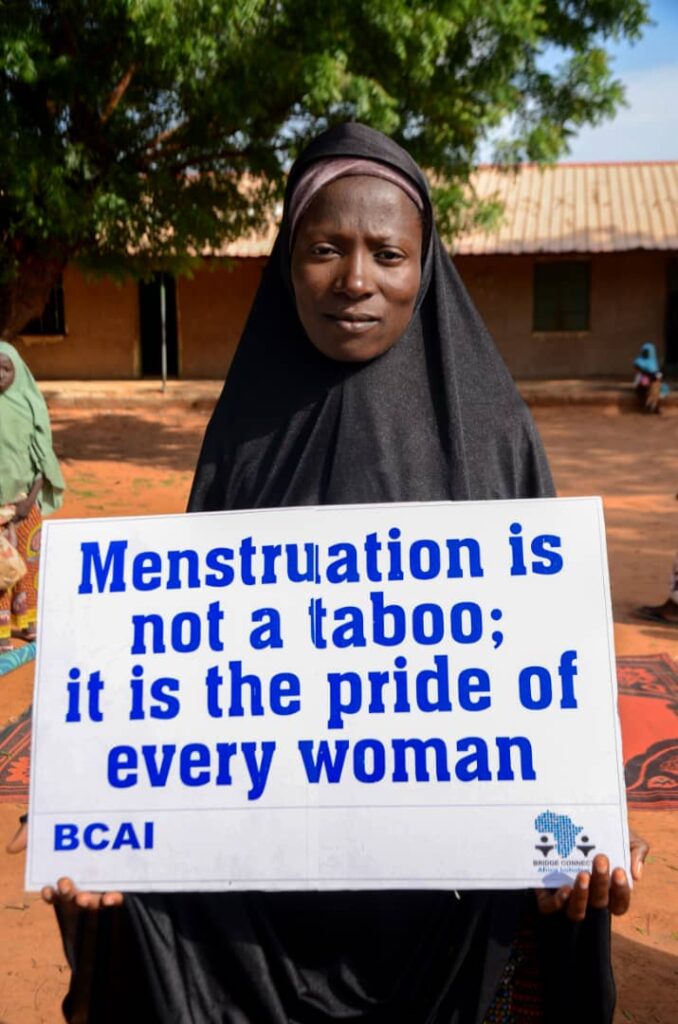NIGERIA. Kano. Concerned over the plight of adolescent girls and women in maintaining their menstrual hygiene in rural areas during the COVID-19 pandemic, the Bridge Connect Africa Initiative in Nigeria has trained 42 girls and women on menstrual health.
Pandemics do not stop menstruation
The Executive Director of Bridge Connect Africa Initiative, Sani Muhammad, spoke to Transcontinental Times and said that despite the pandemic spreading across the world, mensuration does not stop and a lot of girls and women are currently lacking in the area of hygiene.
He continued, “Mensuration is not a taboo, it is the pride of every woman. Considering the times we are in, menstruation does not stop during pandemics. Girls need the knowledge, tools, and resources to keep safe and lead healthy lives. The project will help to promote menstrual equity and reduce the stigma on period poverty.”

About Marke Community
Marke community is a rural community in Dambatta Local Government, which is 60km from Kano city in Nigeria.
Sani explained that Marke was selected for the training and sensitisation project because it is the biggest village in local government area that serves a population of over 15,000 people but does not have a functional primary healthcare centre or any other social amenities.
“The case of the community is very pathetic”, said Sani, “the people are grossly deficient in accessing maternal healthcare services, as they lack functional primary health care or basic water, sanitation and hygiene services.
“As an organization, we are keen on upskilling, building resilience, creating a safe space for mentorship and provide an emergency transport service for Marke and its environs.”
Uncertainty around menstrual pads
During the training, the majority of the girls and women admitted that they did not know what a menstrual pad was or what it is used for.
The organization made packs of menstrual pads that were given to all the participants and they were taught how to use them. The group produced 80 dignity kits, which include petroleum jelly, liquid soap, menthol, hair cream, toothpaste, and deodorant. The women and girls were also taught how to maintain personal hygiene when they have their periods.
In addition, the training covered the National Center for Disease Control (NCDC) COVID-19 prevention guidelines (i.e. washing of hands, use of facemasks, and maintaining social distancing).
Community sensitization
The youth organization also taught the women and girls how to monetize the skills they learnt, a development which Sani said would boost their self-esteem during the era of COVID-19.
300 community members, including men and boys, were also sensitized on the need to create inclusive and safe spaces for women, to ensure they can access information and services that will improve their well-being.
Benefits for the Trainees
At the end of the training, the organization was happy with the resilience of some of the girls and provided seed funding of N20,000 for five girls who showed promise in scaling up their new skills in the community.
Sani explained that the girls were matched with women who are trained as local experts on the skill sets for mentorship, saying that the girls would be mentored for the next three months by these women to scale up their work.
“We believe we are empowering young girls who would set the pace for other women and girls rights issues in their communities and Nigeria”, Sani stated.

